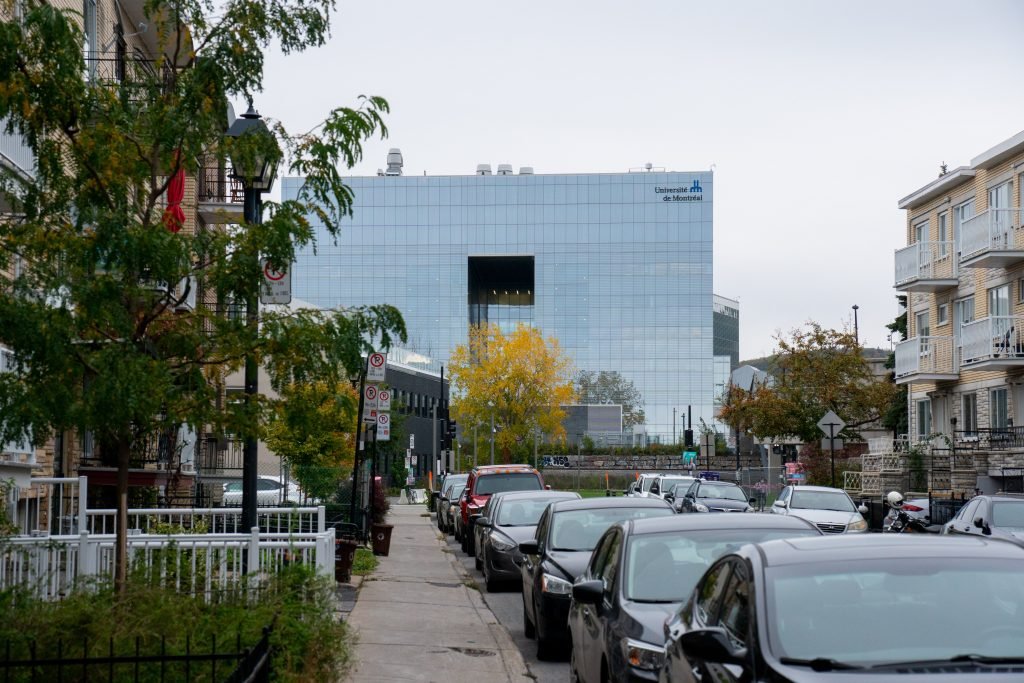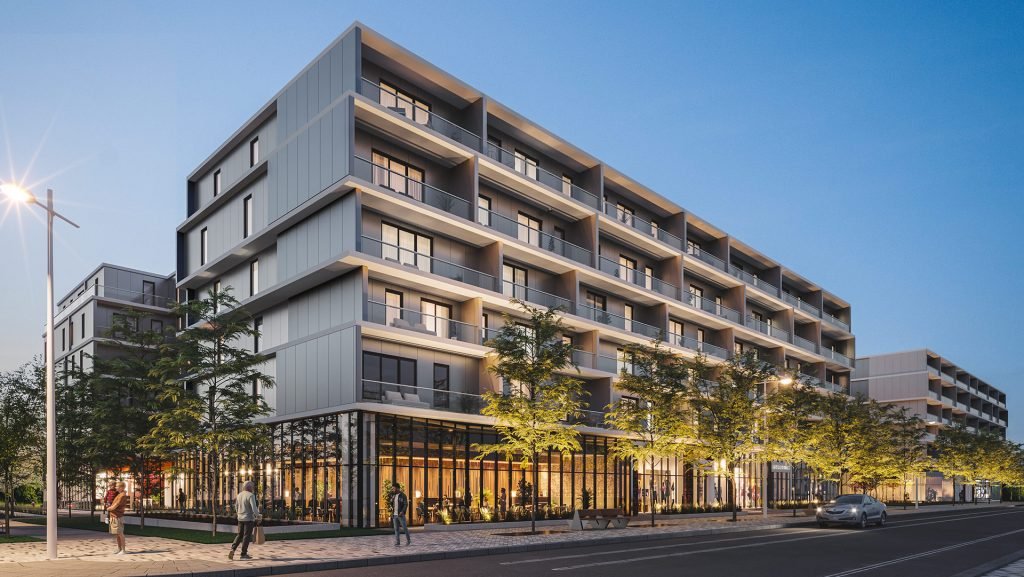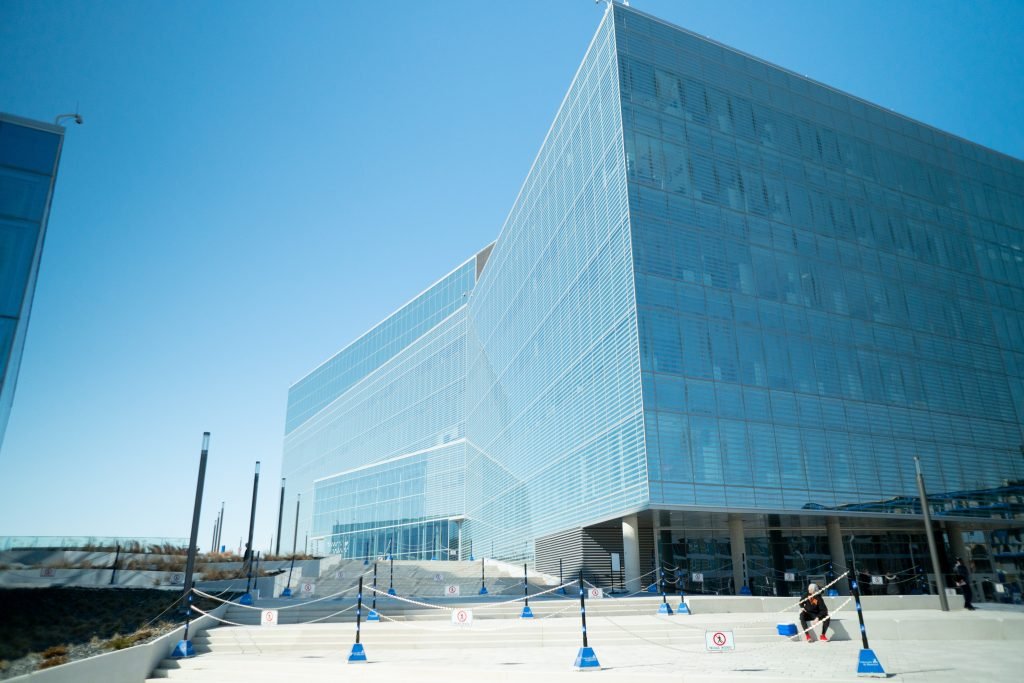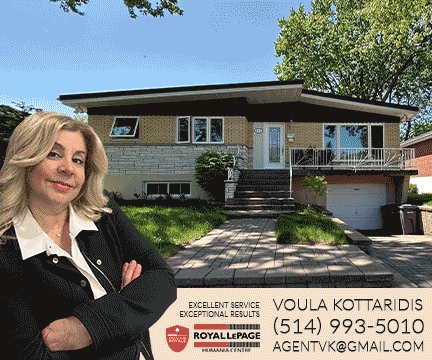
It often catches the eye as you walk down the southern streets of Parc-Extension. A gargantuan structure reflecting the blue and white hues of sky and clouds. Protruding over the horizon like a space station, the MIL Université de Montréal campus is but the latest addition to one of Montreal’s most prestigious educational institutions.
But the new science campus, inaugurated in 2019, has attracted the ire of local politicians, community organizations and residents alike, who say it is having destructive effects on the neighbourhood of Parc-Extension.
On Tuesday, borough Mayor Giuliana Fumagalli authored and presented a 12-page report outlining issues related to the campus along with her recommendations to the Office de consultation publique de Montréal (OCPM), an independent organization with the mission of carrying out public consultation mandates regarding urbanization and development projects.
The report outlines the negative effects the new campus has had on Parc-Extension, namely by acting as a vector of gentrification on the neighbourhood and pushing low-income, immigrant populations out of the area. The report also put forward several recommendations for the university and city to better address the issues.
“I deplore the fact that this institution, which is supposed to unite all Quebecers around education and embody collective and solidary values, is now an important actor in the displacement and weakening of my neighbours in Parc-Extension,”
From student housing to luxury condos
The report alleges a lack of consultation and engagement with local populations during the planning process. Preliminary studies had outlined the need to build accompanying social and student housing to avoid knock-on effects on rent prices in Parc-Extension.
“One of the most important commitments which were not met by the University of Montreal concerns the construction of 1,058 student residences on campus to accommodate close to 2,000 students,” read the report, further explaining that the university had backtracked as student housing was deemed to be not as profitable.
Housing development around the campus has shifted towards luxury markets, such as the MIL HAUS condo project by real-estate company Mondev. “The initial plans for residences have instead been replaced by private rental housing projects currently priced at $3,100 a month for 3 bedrooms, which does not respond to the needs of either students or the residents of Parc-Extension,” underlined the report.
It also condemns that both the city has yet to build the 225 units of social housing that were promised to be constructed around the MIL campus.

Compounded gentrification
Fumagalli’s report underlines that many of these factors have further contributed to the gentrification of the neighbourhood. She also added that the University missed an opportunity to do good by the residents of Parc-Extension.
“One of the main consequences of the phenomenon is an increase in forced residential displacements due to the rise in the cost of rent, discrimination in access to housing and the rise in evictions,” wrote Fumagalli, adding that investment interest in the neighbourhood caused in part by the university campus was causing property prices to soar.
“New landlords are now seeking to make a profit from speculation or the commodification of degraded real estate,” the report added, resulting in the eviction and forced displacement of low-income and racialized communities who have developed communities and social networks in the neighbourhood.
From 2019 to 2021, the average market price for an apartment rental in Parc-Extension was $1006, up from the average of $696 paid by a tenant in 2016, cited the report.
This is a position that a variety of community organizations have also come to. “On Beaumont street, in particular, there’s been a number of luxury condos and luxury apartment projects that have opened recently,” said Amy Darwish of the Comité d’action de Parc-Extension (CAPE), who also presented material to the OCPM.
Varied recommendations
The mayor outlines several recommendations aimed at both the university and the city. It nonetheless recognizes that these recommendations would not stop the negative effects of gentrification already underway, but adds it could at least help slow and attenuate them.
“One of the first steps that the University of Montreal could take would be to explicitly acknowledge its role in the ongoing gentrification of Parc-Extension and to act quickly to try to mitigate the negative consequences for community organizations and residents,” read the report. The report adds that the university could correct its track record by working with community groups and helping to implement solutions.
It also recommends that the university and the city work towards building more social and student housing, to lower the pressure on the rental market in the surrounding area. “I also urge the University of Montreal to both financially and logistically support initiatives like Brique par Brique, a non-profit housing organization in Parc-Extension,” added the mayor.
The report also encourages the university to create programs based on local employment initiatives and francization training for residents and new arrivals. “This proposal is not new and is one of four that came out of a meeting between a committee of Parc-Extension residents and the project managers,” wrote Fumagalli.
“I deplore the fact that this institution, which is supposed to unite all Quebecers around education and embody collective and solidarity values, is now an actor in the displacement and weakening of my neighbours in Parc-Extension,” concluded the report.
The OCPMs’ consultation also received reports from Comité d’action de Parc-Extension (CAPE), the Club de soccer Mont-Royal Outremont, Outremont en famille and citizen Karine Myrgianie Jean-François.










